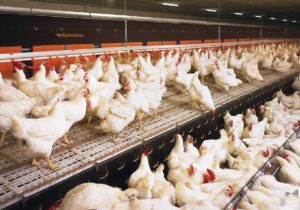
The Antimonopoly Committee of Ukraine (AMCU) has made a decision on the case of violation of competition law by the pharmaceutical group Novo Nordisk, fining it and its distributors UAH 188 million, according to the AMCU website.
“Thanks to the introduced mechanism for providing after-sales discounts, distributors of the Novo Nordisk group companies received additional income significantly higher than 10%, as provided by the legislation of Ukraine, and in some cases – up to 80%. The chain of opaque pricing led to an unjustified overstatement of the selling prices for Novo Nordisk medicines and provided distributors with competitive advantages, without which other participants in the sales of Novo Nordisk medicines could not compete with them,” the message says.
It is clarified that it is about setting prices for medicines intended for the treatment of diabetes mellitus, problems with growth retardation and for the treatment of hemophilia by Novo Nordisk A/S (Denmark), Novo Nordisk Health Care AG (Switzerland) and a number of pharmaceutical distributors and pharmacies: Medpharkom LLC, Medpharkom-Center PrJSC, BaDM LLC, BaDM-B LLC, Pharmacy 3I LLC, Ganza PrJSC, Pharmadis LLC and Medpharm LLC.
AMCU fined Novo Nordisk A/S UAH 134 million, Novo Nordisk Health Care AG UAH 1.7 million, PrJSC Medpharkom-Center UAH 28.7 million, BaDM Group UAH 16.7 million, LLC Pharmacy 3I LLC UAH 680,000, PrJSC Ganza UAH 340,000, LLC Medpharm UAH 5.5 million.
Production at Medpharkom LLC and Pharmadis LLC was discontinued due to the liquidation of the companies.

The Antimonopoly Committee of Ukraine opened a case against Myronivsky Hliboproduct (MHP), Committee Head Yuriy Terentyev has written on his Facebook page.
“The Antimonopoly Committee of Ukraine launched an investigation into the actions of the MHP group (five poultry farms and Private Joint-Stock Company Myronivsky Hliboproduct belonging to Yuriy Kosyuk) in the chicken market on the grounds of abusing monopoly position. The committee established that MHP sets conditions for trade partners for certain areas of sales, obliges partners to adhere to the pricing policy of the MHP group and prohibits them from selling competitors’ products. That is, MHP practices a restrictive trade policy towards distributors, sub-distributors and partners,” Terentyev wrote.
According to him, the actions of MHP can lead to a violation of the chicken distribution market structure, a significant restriction of the rights of other market players to freely choose their partners, as well as imposing their own rules of conduct on the market players.